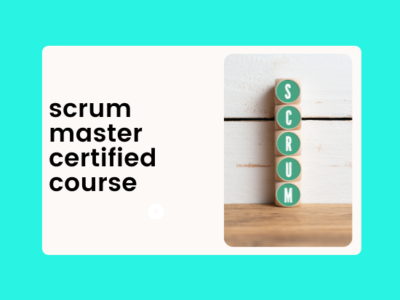Six Sigma Black Belt Certification Training accredited by 6sigmastudy aims at the expert problem solvers who can lead top quality projects along with Green Belts and helps in eliminating defects for revenue improvement of an organization.
Six Sigma Black Belt course focuses on providing students with comprehensive understanding of the various Six Sigma tools and techniques useful to improve the production process and minimize defects in the end product with a greater focus on the practical implementation of these tool and techniques in the organization. The participants will definitely be able to use the knowledge you gained in this course in managing six sigma projects in their respective organizations.
A brief history of Quality
- What is Quality (Definitions) and service or product
- Quality Gurus & their contribution to Quality
- Enterprise wide View
- Leadership
- Six Sigma Roles and Responsibilities
- Team Formation
- Team Facilitation
- Team Dynamics
- Time Management For Teams
- Team Decision making Tools
- Management and Planning Tools
- Team Performance Evaluation And Rewards
- Overview of DMAIC
Six Sigma Methodology – Define
- Important Stakeholders
- Impact On Stakeholders
- Critical To Requirements
- Benchmarking
- Business performance measures
- Financial measures
- VOC
- Kano’s Customer Satisfaction Levels
- Juran’s Customer Needs
- Market Research
- CTQ Flowdown
- QFD
- Performance Metrics
- Project Charter
- Charter Negotiation
- Project management plan and Baselines
- Project Tracking
Six Sigma Methodology – Measure
- Processes, Process characteristics, process flow metrics, inputs and outputs
- Process maps and Flow chart
- SIPOC
- Data Type & Measurement scale
- Data Collection
- Sampling strategies
- Fishbone Diagram
- Relational Matrices or Prioritization Matrix
- Basic Statistics
- Analytical Statistics
- Gauge R & R
- Process Capability Analysis
Six Sigma Methodology – Analyze
- Correlation and Regression Analysis
- Testing of Hypothesis
- FMEA
- Gap Analysis
- The Five Whys
- Pareto Diagram
- Tree Diagram
- Non value added activities
- Cost of poor Quality (COPQ)
Six Sigma Methodology – Improve
- DOE
- Poka-yoke
- 5S
- SMED
- Continuous Flow Manufacturing
- Kaizen
- Kanban
- Theory of constraints
- Risk analysis
Six Sigma Methodology – Control
- Statistical Process Control
- Other Control Tools
- Maintain Controls
- Sustaining Improvements
DFSS
- DFSS
Case Study 1
- Case Study 1 Part 1
- Case Study 1 Part 2
Case Study 2
- Case Study 2 Part 1
- Case Study 2 Part 2
- This course is for employees and organizations requiring a standardized approach to problem solving for the purpose of continuous improvement. This would include team leaders, supervisors, associates, Quality Assurance Engineers, Project Managers, Software Professionals, Practitioners, Quality Assurance team members, Working Executives and Senior Management that will dedicate a small portion of their time applying the DMAIC tools to their natural work area.
- Individuals seeking to significantly improve business processes
- Managers and employees who want to get certified as Black Belt in Six Sigma.
- Any other professional members who are doing research, innovations or consulting in process improvement practices.
course objective.
- Provide comprehensive knowledge to participants about the tool and techniques, advantages, and challenges of the Six Sigma methodology.
- Provide knowledge to students to form and effectively lead a six sigma project team.
- Provide knowledge to students to apply DMAIC (Define, Measure, Analyze, Improve, and Control) and various six sigma tools in process and quality improvement.
- To equip students with knowledge to communicate using Six Sigma concepts
- Familiarize participants on how to assess and manage project risk.
- Equip students with knowledge to avoid pitfalls in implementing six sigma.
value added features.
- placement assistance
- 24/7 technical support
- resume building
- recorded sessions
- self-paced
- reference material
alumni
our Alumni Works at.

frequently asked question.
- Proctored Online Exam
- 125 Questions
- 180 minutes
- One mark awarded for every right answer
- No negative marks for wrong answers
- e-Certificate
All leading companies in the world use Six Sigma. Six Sigma has come a long way since its inception in the mid 80’s. In the present day, Six Sigma is one of the most widely applied methodologies for improvement projects globally. Also, the widespread increase in the demand for certified Six Sigma professionals is a testimony to the fact that Six Sigma is here to stay.
Yes, Six Sigma Study is one of the certification body for Six Sigma Certifications. Six Sigma courses have various certification bodies which provide this certification. Six Sigma Study is one of those certification bodies.
After successfully passing the Six Sigma Yellow Belt exam you will receive the certificate from the exam body (Six Sigma Study) as well as the PDU certificate. After completing Yellow Belt Certification you can pursue Six Sigma Green Belt, which is the next level.
Initially GE and Motorola developed certification programs (belt) to verify individuals’ expertise on the Six Sigma methods at the relevant skill level — entry level to expert. After that many organizations in the 1990s started offering Six Sigma certifications to their employees. 6sigmastudy have been offering Six Sigma certifications and trainings for more than one decade and is one of the reputed names in this field. Various Six Sigma certifications offered by 6sigmastudy are : Six Sigma Yellow Belt Six Sigma Green Belt Lean Six Sigma Green Belt Six Sigma Black Belt Lean Six Sigma Black Belt easyScholars is Authorized Training Partner of 6sigmastudy
All leading companies in the world use Six Sigma. Six Sigma has come a long way since its inception in the mid 80’s. In the present day, Six Sigma is one of the most widely applied methodologies for improvement projects globally. Also, the widespread increase in the demand for certified Six Sigma professionals is a testimony to the fact that Six Sigma is here to stay.
Six Sigma is a data driven, customer focused and result oriented methodology which uses statistical tools and techniques to systematically eliminate the defects and inefficiency to improve processes. Six Sigma was developed by Motorola in 1986 and since then it has been adopted by all leading companies across industries.
Yes. easysScholars is an accredited training partner (ATP) which is accredited to Six Sigma Study to provide these training and certification.
Once you complete your preparation the candidate can schedule the exam in the online portal of the course access provided. The certificate will be issued within one hour of completing the exam.
course outcome.
- Provide comprehensive knowledge to participants about the tool and techniques, advantages, and challenges of the Six Sigma methodology.
- Provide knowledge to students to form and effectively lead a six sigma project team.
- Provide knowledge to students to apply DMAIC (Define, Measure, Analyze, Improve, and Control) and various six sigma tools in process and quality improvement.
- To equip students with knowledge to communicate using Six Sigma concepts
- Familiarize participants on how to assess and manage project risk.
- Equip students with knowledge to avoid pitfalls in implementing six sigma.














